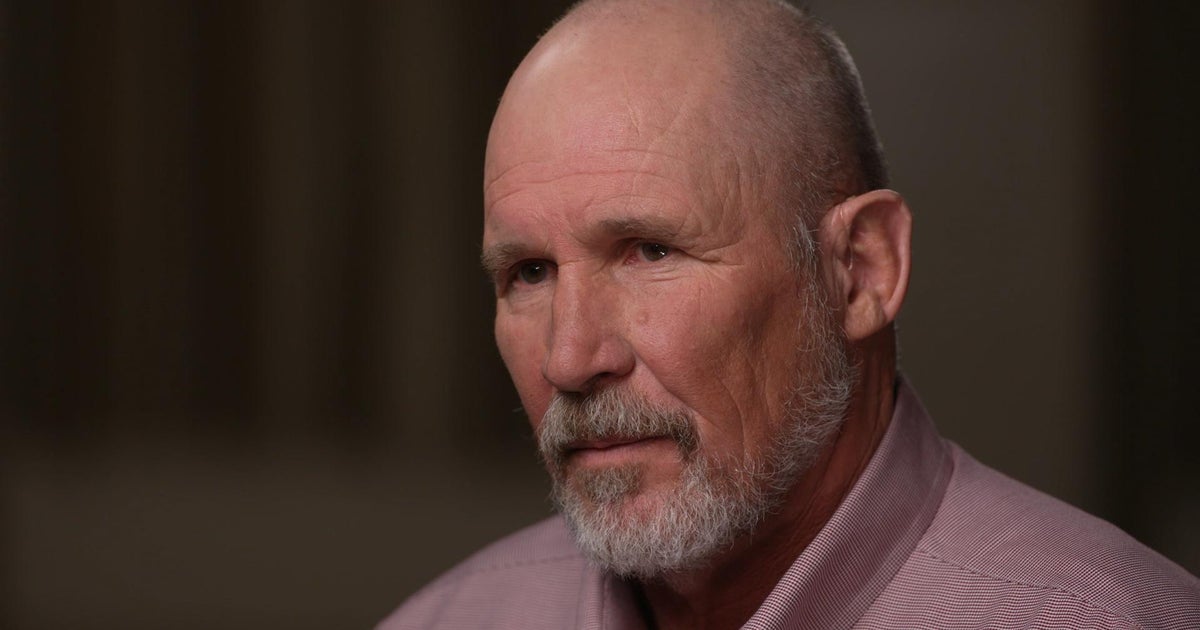Ray Epps Sues Fox News For Defamation: Analyzing The Jan 6th Allegations

Table of Contents
The Core Allegations of the Lawsuit
Ray Epps' lawsuit against Fox News centers on the claim that the network knowingly disseminated false and defamatory statements about his involvement in the January 6th Capitol attack. Epps alleges that Fox News falsely portrayed him as an FBI informant who instigated the violence, severely damaging his reputation and causing him significant emotional distress. The lawsuit points to specific broadcasts and segments featuring prominent Fox News personalities who, Epps claims, repeatedly and falsely linked him to the planning and execution of the events of that day.
- Examples of specific broadcasts or segments: The lawsuit cites numerous instances across various Fox News programs, including Tucker Carlson Tonight and other prime-time shows, where Epps was presented as a key figure in a supposed FBI plot to incite the Capitol riot.
- Quotes from Fox News personalities implicating Epps: The legal filing includes direct quotes from Fox News hosts and commentators suggesting Epps was a government agent orchestrating the violence, using suggestive language and insinuations to connect him to the events without providing credible evidence.
- Mention of the impact these statements had on Epps's reputation and life: The lawsuit details the harassment, threats, and online abuse Epps suffered as a direct result of Fox News’ broadcasts. These actions, he argues, are a direct consequence of the network's reckless dissemination of false information.
Ray Epps and the January 6th Events
Ray Epps was present at the January 6th events, attending rallies and marches leading up to the breach of the Capitol building. However, the available evidence contradicts the narrative presented by Fox News. Videos and witness testimonies show Epps urging fellow protestors to enter the Capitol peacefully the day before the attack, and his actions on January 6th itself are far from the actions of a violent instigator.
- Timeline of Epps' activities on January 5th and 6th: A detailed timeline compiled from available footage shows Epps' movements and interactions, demonstrating a lack of evidence supporting the claims of instigation.
- Analysis of videos and other evidence related to Epps' actions: Analysis of various videos and eyewitness accounts reveal that the interpretation of Epps' actions by Fox News was highly selective and misleading, taking snippets of his statements out of context to paint a false narrative.
- Clarification of any misinterpretations or misinformation surrounding his presence: Several reputable news outlets and fact-checking organizations have debunked the conspiracy theories linking Epps to an FBI plot, highlighting the lack of credible evidence supporting these claims. The FBI itself has not corroborated the allegations made by Fox News.
Defamation Law and the Burden of Proof
To succeed in his defamation lawsuit, Ray Epps must prove that Fox News acted with actual malice—that is, they knew the statements they made were false or acted with reckless disregard for the truth. This is a high legal bar, especially for public figures. Fox News will argue that their reporting was protected under the First Amendment, and that their statements were based on good-faith belief, even if ultimately incorrect.
- Definition of defamation and its key elements: Defamation requires a false statement of fact that harms the reputation of another person, published to a third party. For public figures, the additional element of actual malice must be proven.
- Explanation of the "actual malice" standard for public figures: The "actual malice" standard, established in New York Times Co. v. Sullivan, requires proof that the defendant knew the statement was false or acted with reckless disregard for the truth.
- Potential legal strategies for both sides in the case: Epps' legal team will likely focus on proving that Fox News knew their reporting was false or acted with reckless disregard for the truth. Fox News will likely argue that their reporting was based on reasonable belief and falls under the umbrella of fair commentary or opinion.
The Broader Context: January 6th Conspiracy Theories
The Ray Epps case highlights the dangerous consequences of the proliferation of misinformation surrounding the January 6th Capitol attack. False narratives and conspiracy theories, fueled by social media and certain media outlets, have significantly impacted public discourse and eroded trust in democratic institutions. The implications extend far beyond the individual case, touching on broader issues of media responsibility and the fight against disinformation.
- Examples of other prominent January 6th conspiracy theories: The case highlights the broader ecosystem of false narratives surrounding the January 6th events, with various unsubstantiated claims shaping public perceptions and political discourse.
- The role of social media in spreading misinformation: Social media platforms played a crucial role in amplifying and disseminating misinformation related to January 6th, contributing to the spread of conspiracy theories and the polarization of public opinion.
- The effects of disinformation on trust in institutions: The spread of misinformation has eroded public trust in key institutions, including law enforcement, the media, and the government, contributing to social division and political instability.
Conclusion
The Ray Epps defamation lawsuit against Fox News is a critical legal battle with far-reaching implications. It underscores the dangers of unchecked misinformation and the urgent need for accountability in the media landscape. The outcome of this case will significantly impact the future of media responsibility and the fight against disinformation related to the January 6th Capitol attack and beyond. Understanding this case, from the specific allegations of defamation to the broader context of January 6th conspiracy theories, is vital for navigating the complex issues of free speech, accountability, and the ongoing struggle against misinformation. Stay informed about the developments in the Ray Epps vs. Fox News defamation lawsuit to understand its implications for the future of free speech and accountability.

Featured Posts
-
 Understanding Misinformation Resistance A Cnn Perspective
May 02, 2025
Understanding Misinformation Resistance A Cnn Perspective
May 02, 2025 -
 Verdeelstation Oostwold Protesten Ten Spijt Bouw Gaat Door
May 02, 2025
Verdeelstation Oostwold Protesten Ten Spijt Bouw Gaat Door
May 02, 2025 -
 Syracuse Lacrosse Hazing 11 Players Turn Themselves In
May 02, 2025
Syracuse Lacrosse Hazing 11 Players Turn Themselves In
May 02, 2025 -
 The Hoike At The Merrie Monarch Festival A Deep Dive Into Pacific Island Culture
May 02, 2025
The Hoike At The Merrie Monarch Festival A Deep Dive Into Pacific Island Culture
May 02, 2025 -
 Christina Aguileras New Photoshoot Fans React To Altered Images
May 02, 2025
Christina Aguileras New Photoshoot Fans React To Altered Images
May 02, 2025
